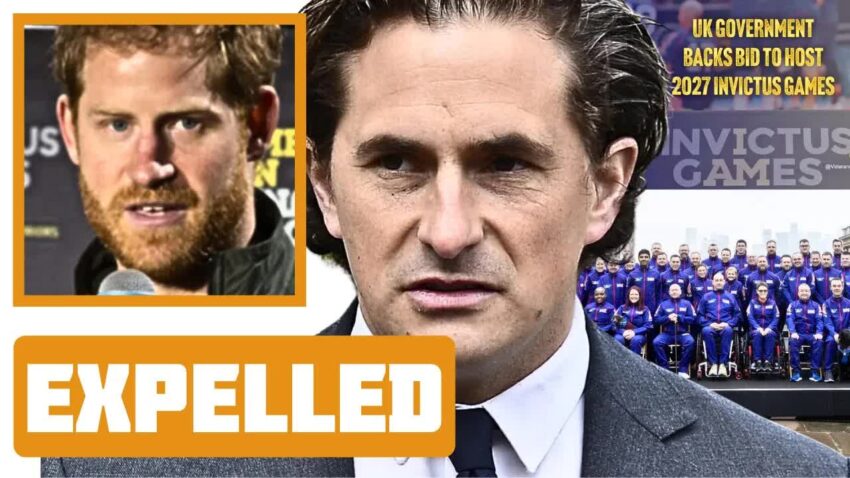In a surprising turn of events, Minister Johnny Mercer has made it clear that Harry and Meghan won’t be part of the upcoming Invictus Games in Birmingham.
The Duke and Duchess of Sunset have been left out of the UK’s bid to host the veteran-focused event in 2027, sparking a wave of speculation and intrigue.
While the Sussex PR machine was busy promoting Harry’s anticipated return to British soil for the 10th anniversary of the Invictus Games, Mercer and his team had different ideas.
It seems that their plans do not align with including Meghan in the proceedings, regardless of her intentions to show support, even briefly.
At the core of this decision lies a substantial £26 million bid to bring the Games back to the UK, led by Mercer, who is vocal about his ambitions to make the country a premier destination for veterans.
While this goal is admirable, it appears that there may not be space for Harry and Meghan in Mercer’s vision, especially considering their controversial exit from royal duties and penchant for stirring up drama.
Reports suggest that organizers are contemplating excluding the couple altogether or possibly inviting Harry alone, while politely requesting Meghan to stay on her side of the pond.
This deliberation stems from a desire to prevent the Invictus Games from being overshadowed by the ongoing saga surrounding the Sussexes, with all its theatrics and potential distractions.
Mercer, a veteran himself, is deeply invested in this bid, envisioning a festival that highlights the resilience and spirit of injured service personnel and veterans, positioning the UK as a leader in veteran care.
The British government has pledged £26 million to support this initiative, underscoring its commitment to honoring and assisting those who have served their country.
However, public sentiment appears to lean towards keeping the focus of the event on the athletes and the noble cause they represent, rather than turning it into a spectacle dominated by the presence of Harry and Meghan.
Suggestions abound on how to maintain the integrity of the Invictus Games, such as involving other members of the royal family like Queen Camilla or Princess Anne in place of the Sussexes.
The consensus is clear – the priority should be on honoring the heroes the event was designed for, rather than accommodating the royal couple seeking a platform for their personal narratives.
The idea of Harry and Meghan parading around Birmingham, isolated from the public as if they were still frontline royals, is viewed as a distraction that could detract from the event’s essence.
Beyond mere optics, the crux of the matter lies in upholding the integrity of the Invictus Games as a symbol of hope and resilience for veterans.
It is crucial to ensure that the event remains a beacon of support for those who have sacrificed for their country, rather than becoming a stage for royal theatrics and controversies.
As the dust settles on this royal saga, it is evident that the veterans and the Invictus Games deserve an environment free from the turmoil of royal politics and personal agendas.
Mercer’s vision for a celebration of recovery, devoid of distractions from the Sussexes, offers hope for a meaningful and impactful event that truly honors the spirit of service and sacrifice.
It serves as a reminder that actions in support of veterans speak volumes, far louder than the headlines generated by the Sussex couple.
